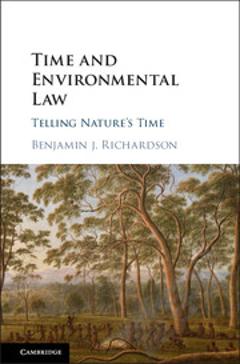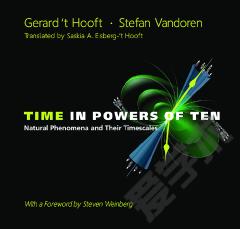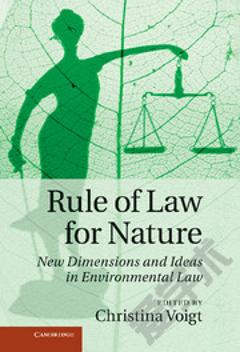Time and Environmental Law: Telling Nature's Time
Disciplined by industrial clock time, modern life distances people from nature's biorhythms such as its ecological, evolutionary, and climatic processes. The law is complicit in numerous ways. It compresses time through 'fast-track' legislation and accelerated resource exploitation. It suffers from temporal inertia, such as 'grandfathering' existing activities that limits the law's responsiveness to changing circumstances. Insouciance about past ecological damage, and neglect of its restoration, are equally serious temporal flaws: we cannot live sustainably while Earth remains degraded and unrepaired. Applying international and interdisciplinary perspectives on these issues, Time and Environmental Law explores how to align law with the ecological 'timescape' and enable humankind to 'tell nature's time'. Lending insight into environmental behaviour and impacts, this book pioneers a new understanding of environmental law for all societies, and makes recommendations for its reform. Minding nature, not the clock, requires regenerating Earth, adapting to its changes, and living more slowly.
{{comment.content}}








 京公网安备 11010802027623号
京公网安备 11010802027623号